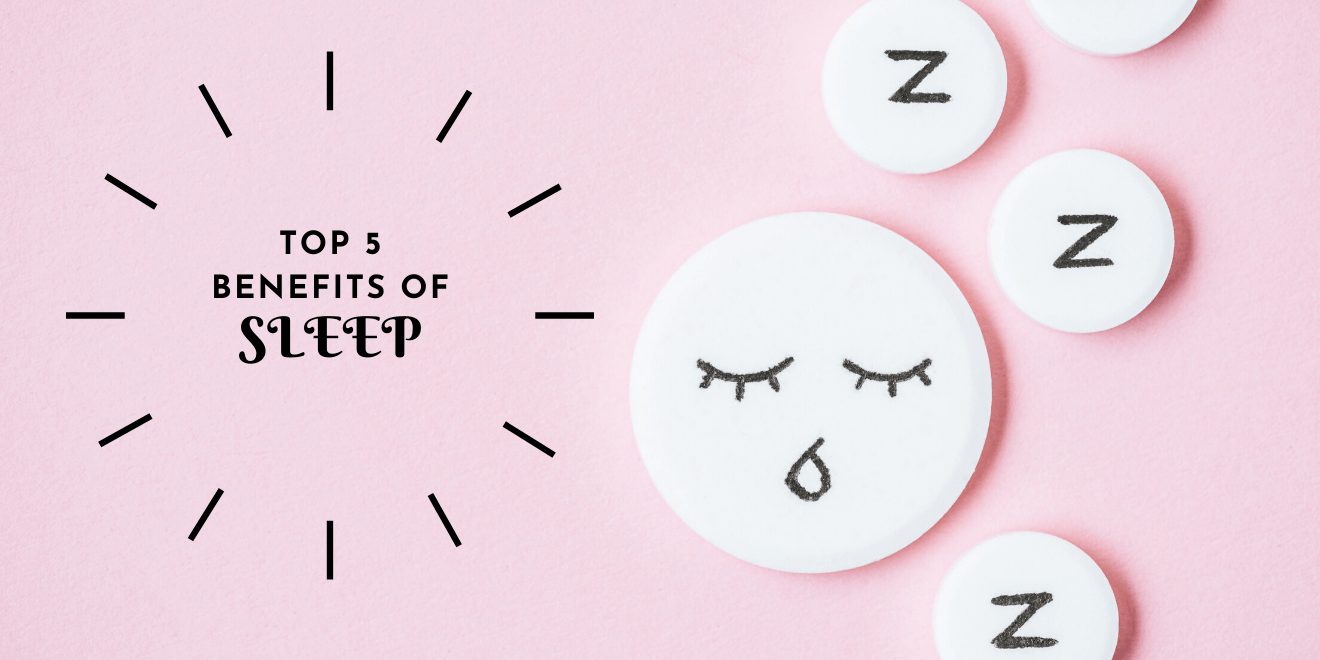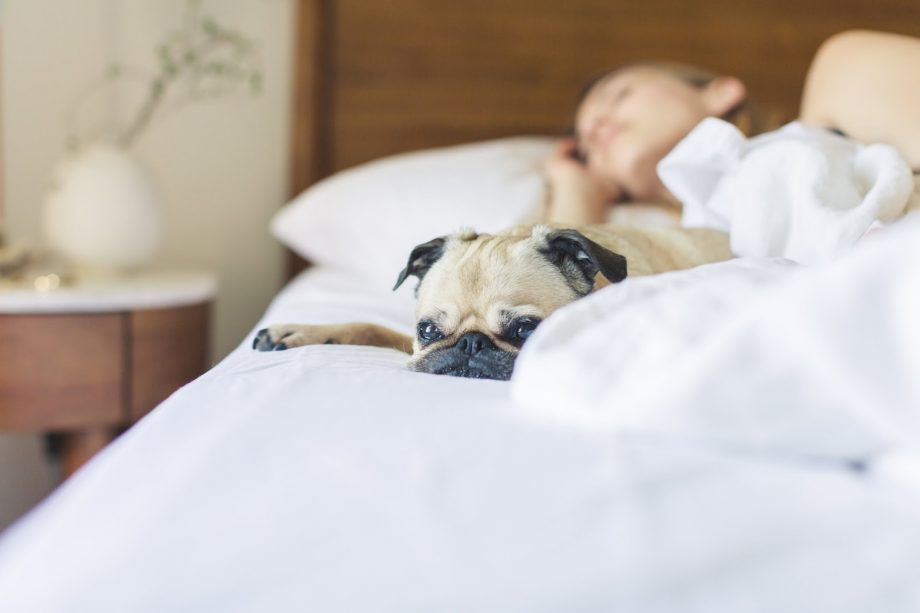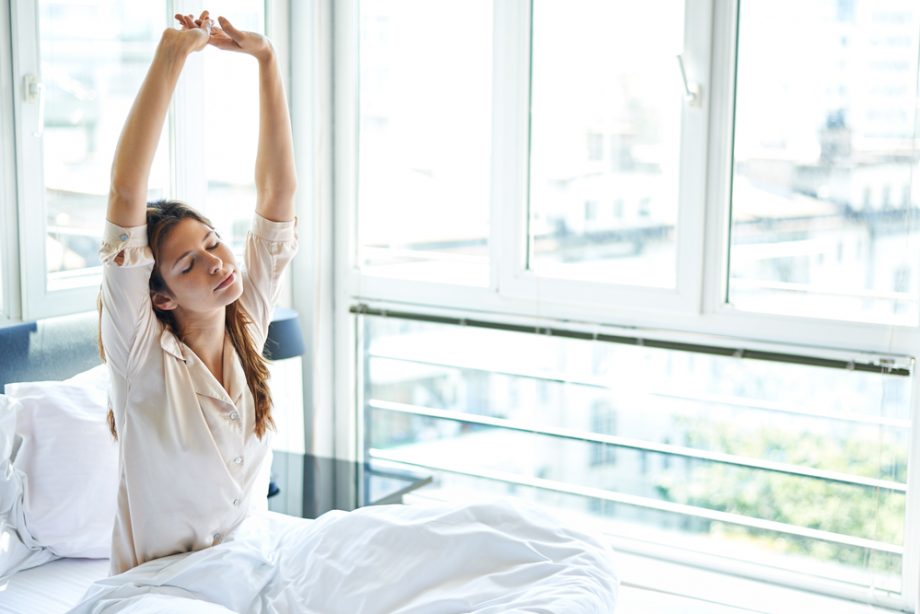5 Steps to have the Best Sleep Tonight

Today’s fast-paced lifestyle has led many people to believe that it’s ideal to work harder than rest better. However, sleep isn’t entirely for the weak—it’s the other way around. Here are some of the health benefits one can get from a good night’s sleep.
One of the leading factors in obesity is sleep deprivation. The less amount of time a person sleeps at night, the more tendency for them to consume more calories. Sleep deprivation prevents the fluctuation of appetite hormones in the body. This causes an individual to have poor appetite regulation, allowing them to consume more calories than what the body needs daily. That’s why getting enough shut-eye can help combat overeating and maintain healthy body weight.
Sleep can help reset the body and the brain. Getting quick naps during the day rewires the brain for it to become more alert. One can find it easier to concentrate on tasks at hand after a good forty winks. Thus, an increase in concentration results in the ability to function better and work more productively throughout the day.

Getting enough sleep reduces the risk of cardiovascular diseases. If one stays up and is active for long periods, their blood pressure can stay high for a longer amount of time. High blood pressure increases one’s risk of getting heart disease and stroke.
When the body is asleep, blood pressure remains low. By this time, the body remains at rest and takes this opportunity to reset and repair some of the damages so that it can function normally the next day.
Not having enough sleep at night can make people cranky. This is because sleep deprivation forces the body to produce an elevated level of stress hormones. Sleeping between 7 to 9 hours at night or getting better quality deep sleep often can help regulate stress levels.
Because sleep has a significant effect on the production of hormones, not getting enough sleep creates an imbalance of chemicals in the body. People who sleep better have better serotonin levels. This hormone promotes the feeling of happiness in individuals. Thus, having a healthy amount of serotonin in the body reduces the risk of depression.
Now that you know how the right amount of sleep can help the body, here are a few tips to get a good night’s rest.
One of the biggest reasons why people find it hard to sleep is because they may be suffering from different forms of sleep problems. For example, sleep apnea prevents one from breathing better while in sleep, causing them to create noise as they struggle for enough air while sleeping.

For those suffering from this condition, getting sleep apnea devices , like a CPAP machine, can help them breathe better while they sleep. This device clears the airways, allowing for a more comfortable and deeper sleep.
Exposure to blue light can stop one from sleeping better. Try to avoid watching TV or mobile usage a few hours before bedtime. That way, the body is signaled that it should be at rest. During the day, try to get as much sunlight to help energize the body. At night, avoid exposing yourself to blue light as much as possible. Turning off the lights makes it easier for one to relax, rest, and eventually, get some sleep.
Physical activity can improve one’s sleep quality and increase sleep duration. Apart from reducing stress, exercise can help tire one down and reset the sleep-wake cycle. Exercise raises the body’s temperature and allows it to drop after a few hours to trigger sleepiness.
Opt to work out outdoors to increase exposure to sunlight during the day and reset the body’s cycle. Getting at least 10 minutes of exercise a day can drastically change nighttime sleep, especially when done religiously.

A healthy lifestyle is an overall effort one should take to get a better life. Apart from a balanced diet and regular exercise, sleep plays a huge role in keeping the body in tip-top shape. So make sure to get enough rest every night!
The body should be trained to recognize when to boot up and when to shut down. Inconsistent sleeping patterns mess with the body clock and prevent it from sleeping easily when it needs to.
Set a time when you would sleep and wake up every day. Strive to stay on this schedule, and do not be tempted to stay up late or sleep in on weekends. Soon, the body would be conditioned to naturally follow this rhythm, even without prompting.
It would also help to develop a personal pre-bedtime ritual. This might be reading a book (but again, not from an electronic device) or soaking in the bathtub every night before sleeping. If done repeatedly and consistently, such relaxing activities send a signal to the brain to start winding down, saving you from hours of tossing and turning.
Several environmental factors affect the quality of one’s sleep. Needless to say, the body can’t achieve a state of total calm if any form of discomfort plagues it.
As a general rule, do not use a mattress for more than 10 years. To get rid of dust and other allergens, pillowcases and blankets should be changed at least once a week. After all, there is no greater feeling than diving into fresh clean sheets at the end of a long day.

With the proper equipment and most conducive surroundings, tossing and turning would be a thing of the past and drowsing in no time won’t be a problem.
Considering the numerous physical, mental, and professional benefits that sleep can bring, it is necessary to ensure a continuous seven-hour doze. While certain internal and external factors may impede a good night’s sleep, identifying them could go a long way in improving the situation.
Also, developing good habits could normalize the body’s circadian rhythm, enabling one to always obtain the sufficient beauty rest their body requires and deserves.
Happy slumber!
Top 5 Health Benefits of Sleep
1. Aid in weight management
One of the leading factors in obesity is sleep deprivation. The less amount of time a person sleeps at night, the more tendency for them to consume more calories. Sleep deprivation prevents the fluctuation of appetite hormones in the body. This causes an individual to have poor appetite regulation, allowing them to consume more calories than what the body needs daily. That’s why getting enough shut-eye can help combat overeating and maintain healthy body weight.
2. Improve concentration and productivity
Sleep can help reset the body and the brain. Getting quick naps during the day rewires the brain for it to become more alert. One can find it easier to concentrate on tasks at hand after a good forty winks. Thus, an increase in concentration results in the ability to function better and work more productively throughout the day.

3. Prevent heart disease and stroke
Getting enough sleep reduces the risk of cardiovascular diseases. If one stays up and is active for long periods, their blood pressure can stay high for a longer amount of time. High blood pressure increases one’s risk of getting heart disease and stroke.
When the body is asleep, blood pressure remains low. By this time, the body remains at rest and takes this opportunity to reset and repair some of the damages so that it can function normally the next day.
4. Reduce stress
Not having enough sleep at night can make people cranky. This is because sleep deprivation forces the body to produce an elevated level of stress hormones. Sleeping between 7 to 9 hours at night or getting better quality deep sleep often can help regulate stress levels.
5. Promote better mental health
Because sleep has a significant effect on the production of hormones, not getting enough sleep creates an imbalance of chemicals in the body. People who sleep better have better serotonin levels. This hormone promotes the feeling of happiness in individuals. Thus, having a healthy amount of serotonin in the body reduces the risk of depression.
5 Steps to Getting Your Best Night's Sleep
Now that you know how the right amount of sleep can help the body, here are a few tips to get a good night’s rest.
1. Solve sleep problems (if there’s any)
One of the biggest reasons why people find it hard to sleep is because they may be suffering from different forms of sleep problems. For example, sleep apnea prevents one from breathing better while in sleep, causing them to create noise as they struggle for enough air while sleeping.

For those suffering from this condition, getting sleep apnea devices , like a CPAP machine, can help them breathe better while they sleep. This device clears the airways, allowing for a more comfortable and deeper sleep.
2. Turn off the lights
Exposure to blue light can stop one from sleeping better. Try to avoid watching TV or mobile usage a few hours before bedtime. That way, the body is signaled that it should be at rest. During the day, try to get as much sunlight to help energize the body. At night, avoid exposing yourself to blue light as much as possible. Turning off the lights makes it easier for one to relax, rest, and eventually, get some sleep.
3. Exercise
Physical activity can improve one’s sleep quality and increase sleep duration. Apart from reducing stress, exercise can help tire one down and reset the sleep-wake cycle. Exercise raises the body’s temperature and allows it to drop after a few hours to trigger sleepiness.
Opt to work out outdoors to increase exposure to sunlight during the day and reset the body’s cycle. Getting at least 10 minutes of exercise a day can drastically change nighttime sleep, especially when done religiously.

A healthy lifestyle is an overall effort one should take to get a better life. Apart from a balanced diet and regular exercise, sleep plays a huge role in keeping the body in tip-top shape. So make sure to get enough rest every night!
4. Stick to a routine
The body should be trained to recognize when to boot up and when to shut down. Inconsistent sleeping patterns mess with the body clock and prevent it from sleeping easily when it needs to.
Set a time when you would sleep and wake up every day. Strive to stay on this schedule, and do not be tempted to stay up late or sleep in on weekends. Soon, the body would be conditioned to naturally follow this rhythm, even without prompting.
It would also help to develop a personal pre-bedtime ritual. This might be reading a book (but again, not from an electronic device) or soaking in the bathtub every night before sleeping. If done repeatedly and consistently, such relaxing activities send a signal to the brain to start winding down, saving you from hours of tossing and turning.
5. Ensure comfort
Several environmental factors affect the quality of one’s sleep. Needless to say, the body can’t achieve a state of total calm if any form of discomfort plagues it.
- Temperature. The bedroom temperature most ideal for snoozing is between 60 and 68 degrees Fahrenheit (15.5 to 19.5 degrees Celsius). Any point outside that range may cause one to shiver or sweat all night.
- Lighting. Also, even a small beam of light slipping into the room can be a powerful distraction. Keep the bedroom door shut tight and choose curtains that would effectively block out the light.
- Sounds. Of course, unwanted noises, like a spouse’s snoring, could be intrusive. To guarantee that sleep is uninterrupted, consider using noise-canceling devices, like earplugs.
- Mattress. And, finally, as we all learned from the princess and her pea, the bed you sleep in is of utmost importance. If needed, splurge on a high-quality mattress and go for sheets with higher than average thread count. Look for those that are not only soft enough to cozily burrow into but also offer enough resistance to properly support the back.
As a general rule, do not use a mattress for more than 10 years. To get rid of dust and other allergens, pillowcases and blankets should be changed at least once a week. After all, there is no greater feeling than diving into fresh clean sheets at the end of a long day.

With the proper equipment and most conducive surroundings, tossing and turning would be a thing of the past and drowsing in no time won’t be a problem.
Afterword
Considering the numerous physical, mental, and professional benefits that sleep can bring, it is necessary to ensure a continuous seven-hour doze. While certain internal and external factors may impede a good night’s sleep, identifying them could go a long way in improving the situation.
Also, developing good habits could normalize the body’s circadian rhythm, enabling one to always obtain the sufficient beauty rest their body requires and deserves.
Happy slumber!




































































































